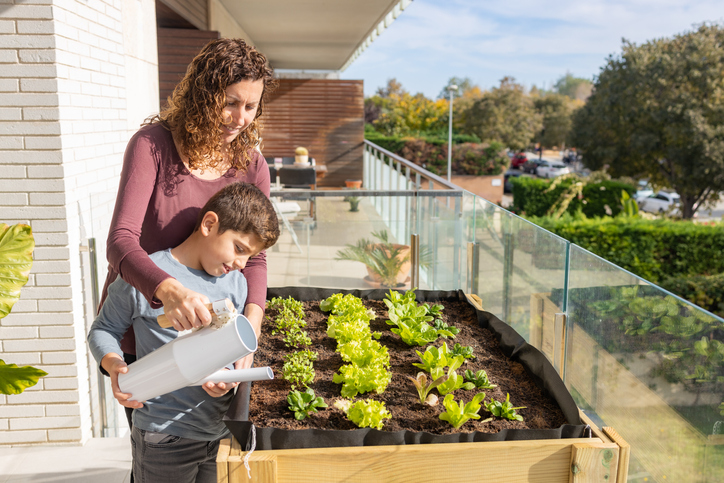One challenge many expatriates face is space norms in their new country. They may be trading a freestanding home with yard for a cramped apartment in an international capital, or find themselves moving from a city studio to a multi-level villa in a rural manufacturing area. In either case, managing the new space can be a challenge, and it is important to provide information to manage expectations.
Tips for small spaces:
Start a balcony garden
Even the smallest home can be used to grow some types of flowers or vegetables, which both makes the space feel more comfortable and brings a touch of the pleasures of having a yard to apartment living. Potted gardens, railing planters, and stacked planters are all great options. Even a small windowsill herb garden can create the impression of outdoor space.
Look for local furniture
Countries where the average home size is small have numerous ways of increasing storage space. Purchasing beds with built-in drawers and headboard shelves, using floor chairs that can be folded and put away, or specifically looking for options with pocket doors can make a small space more livable. In these situations, going to local home stores may be preferable to bringing furniture from the home country.
Think vertical
When floor space is limited, building up is the key. Lofts are very common in some cities, which can allow for both a full bedroom and living area in a studio space.
Tips for large spaces:
Manage spending
One of the challenges of large spaces is that we tend to fill the space we have. It can be tempting to buy things just because there is a place for it, but keep the short-term nature of a relocation in mind: anything that comes in the house will, sooner or later, have to be moved out. Alternatively, expatriates can find local options for charity donations, so any excess will eventually be put to use.
Outsource
If an assignee isn’t used to caring for a large yard or pool, they may wish to enlist local help. Living Abroad provides information on household help norms in its destination reports, and suggests where to find reliable workers.
Use the opportunity
Hosting home parties and barbecues can help with making friends in a new location, particularly if a new family is able to host play dates for children and their school friends.
Overall, assignees may find they love the ease of cleaning a small space, or that even upon returning home they can no longer live without a lawn. Living Abroad’s extensive “Find a Home” and “Everyday Living” sections are here to help guide them through any scenario. An assignment isn’t just a chance to live in a new country, it’s a chance to embrace a new style of living.
Written by Kate Havas, GMS-T, Content Manager


